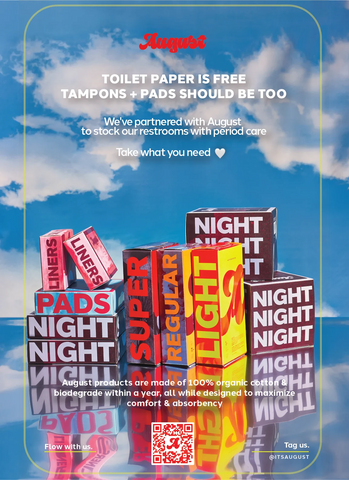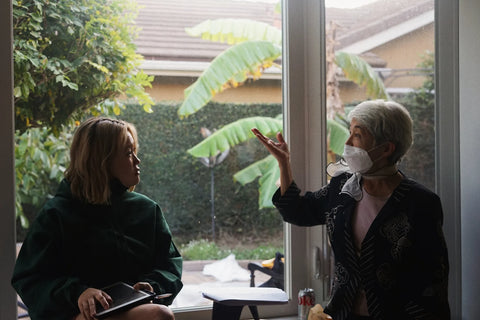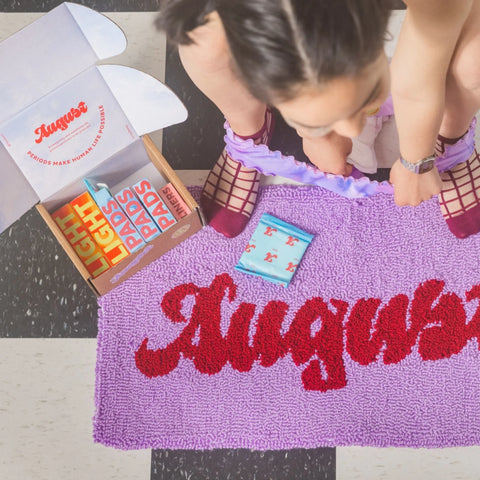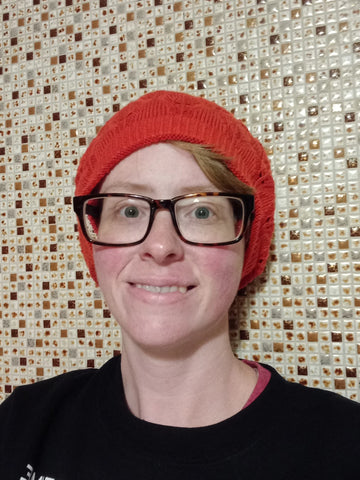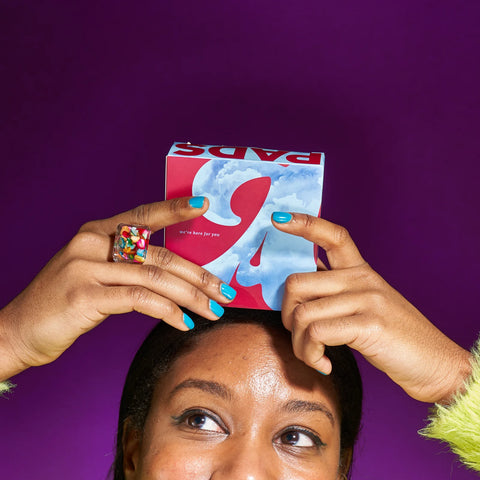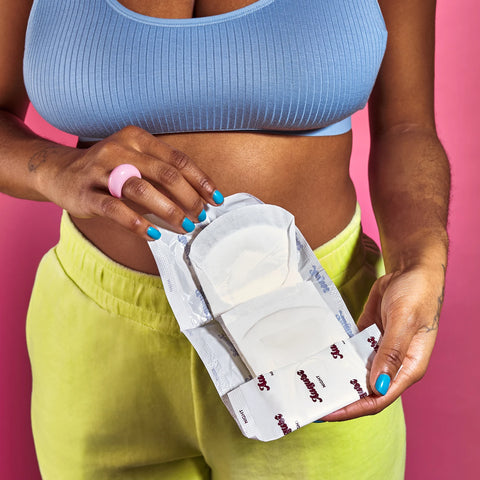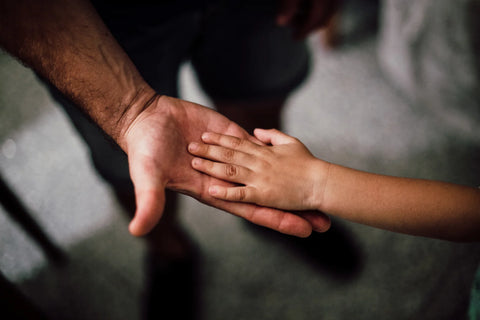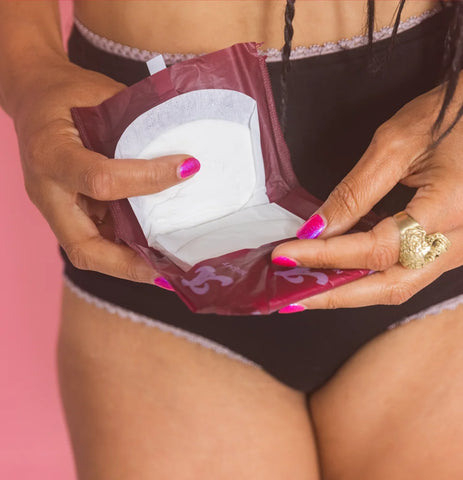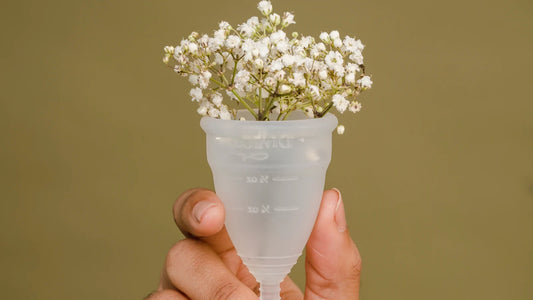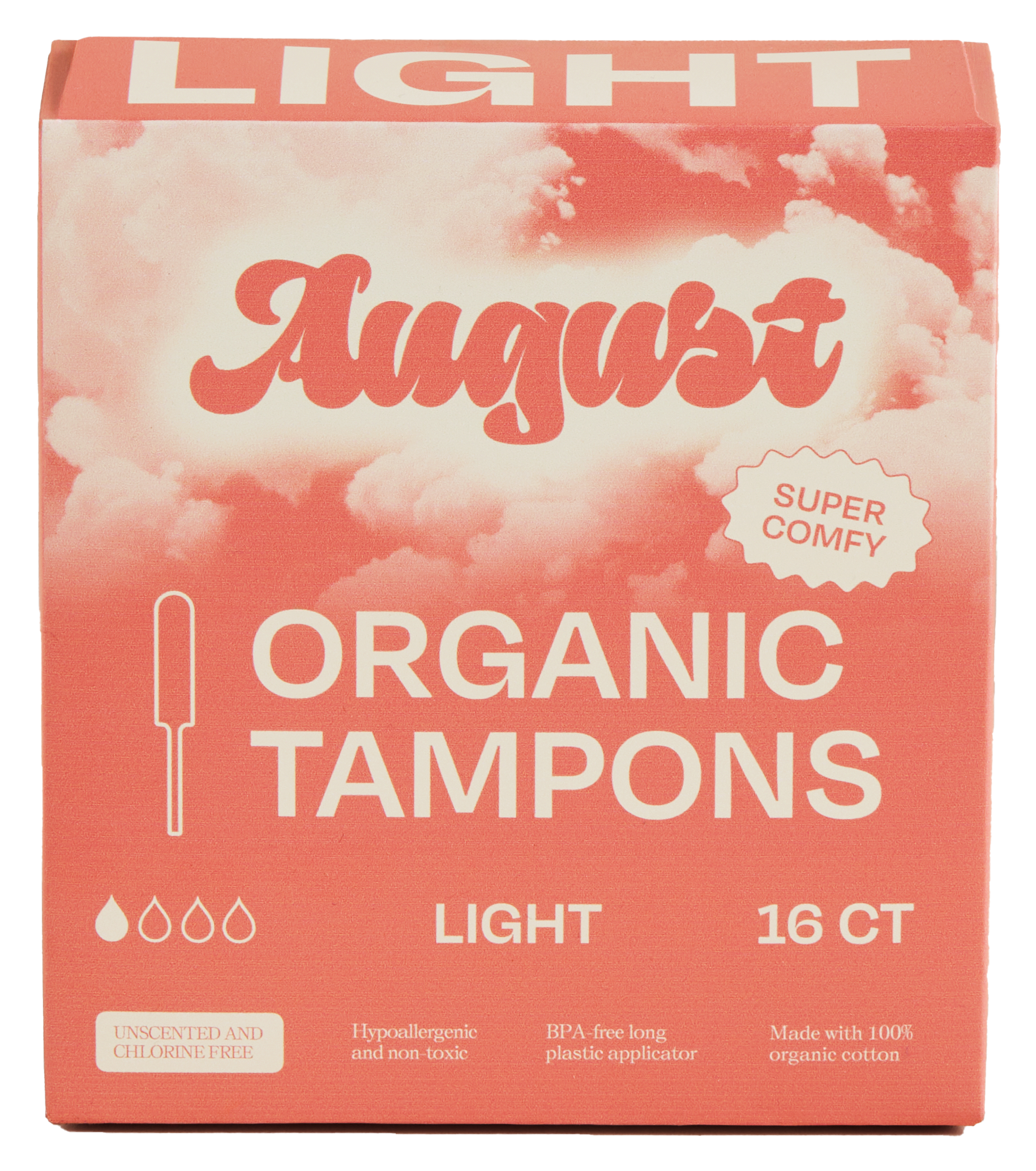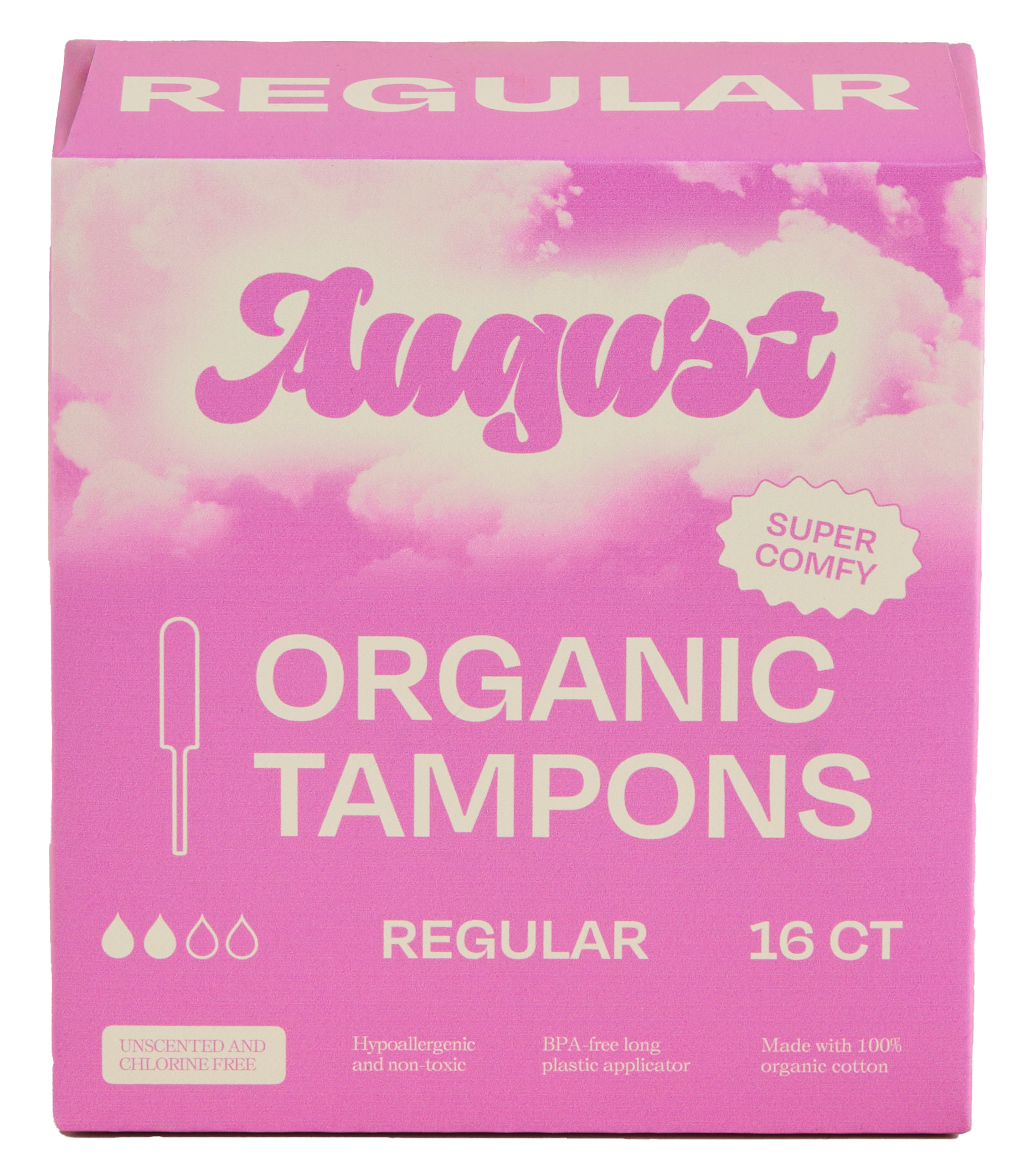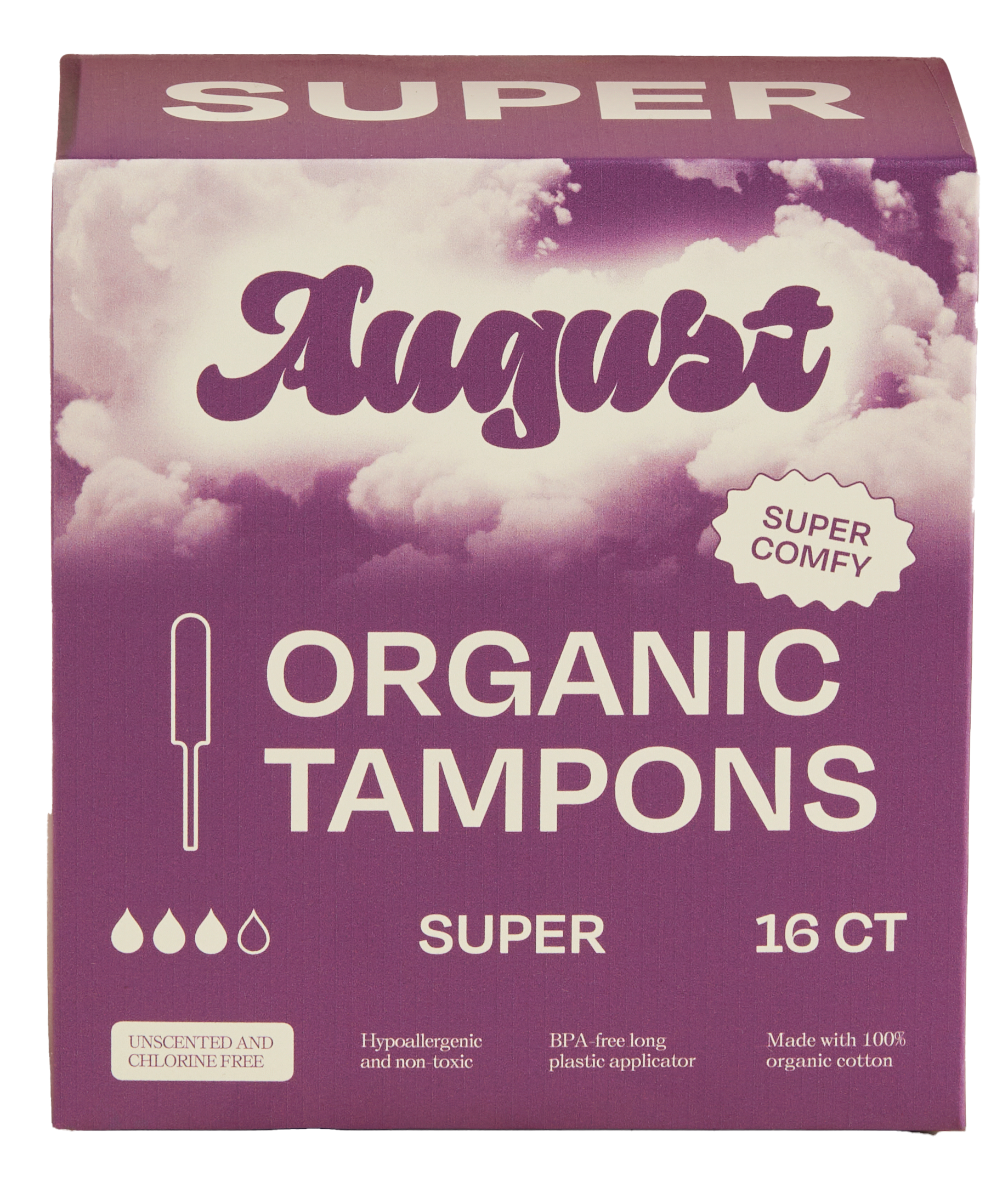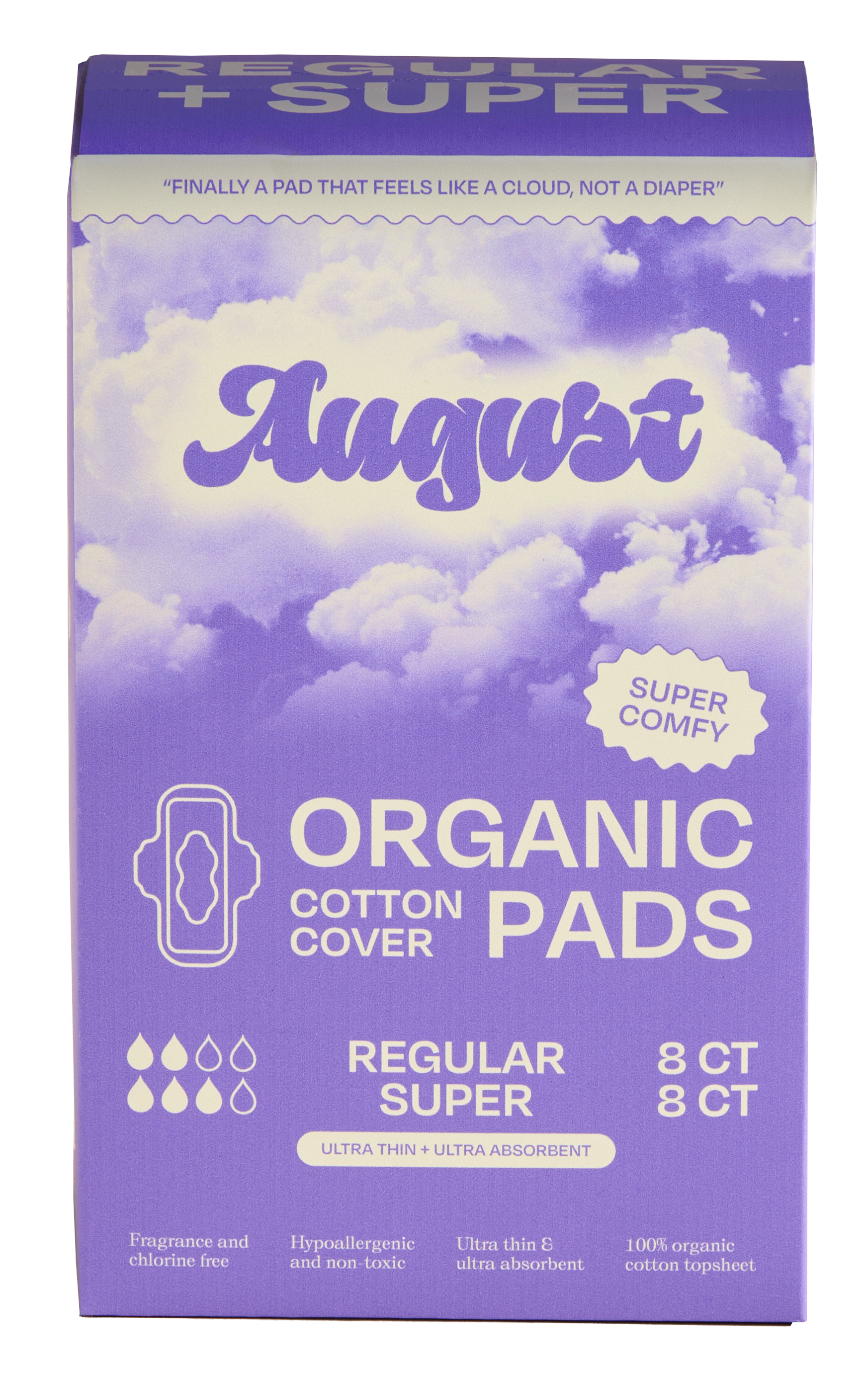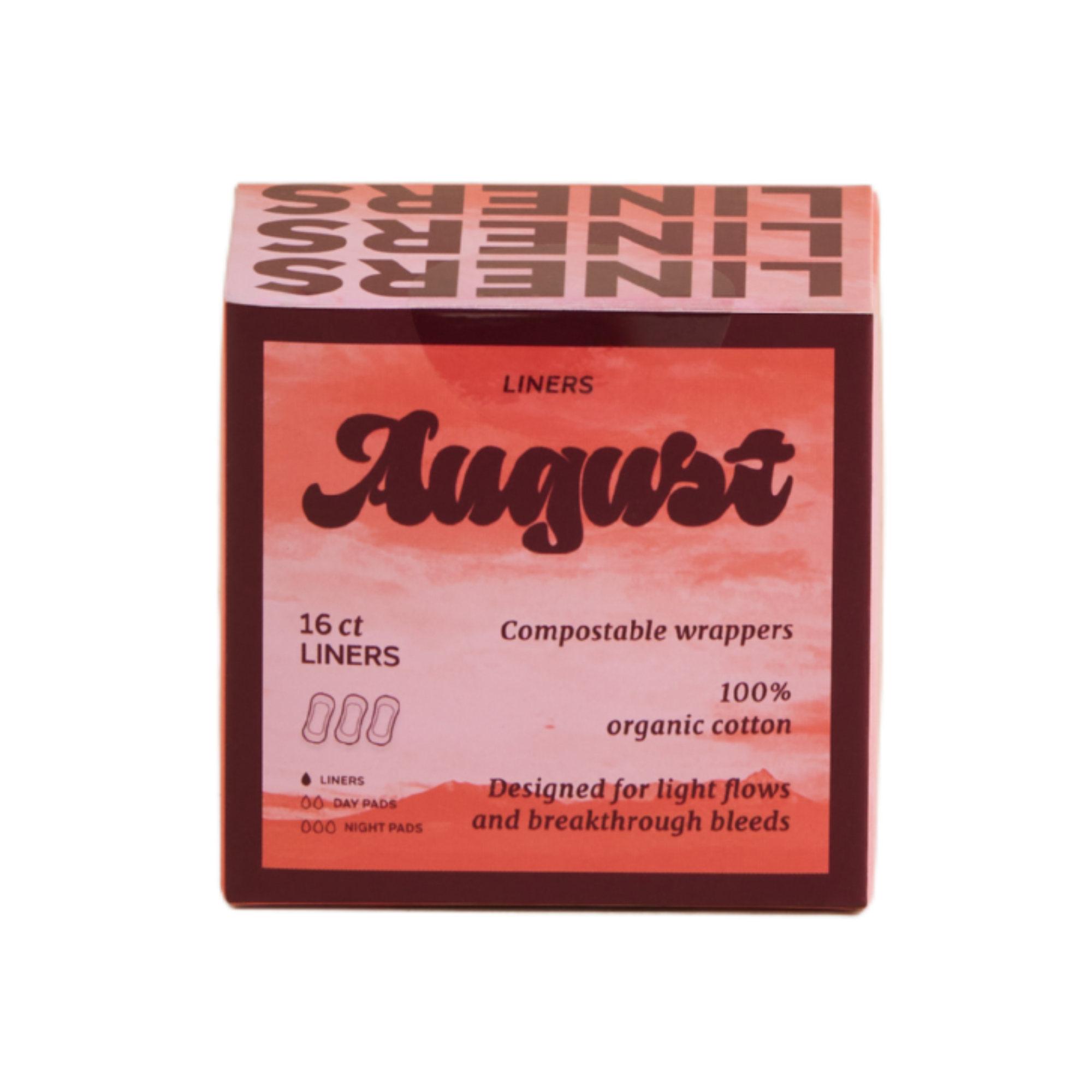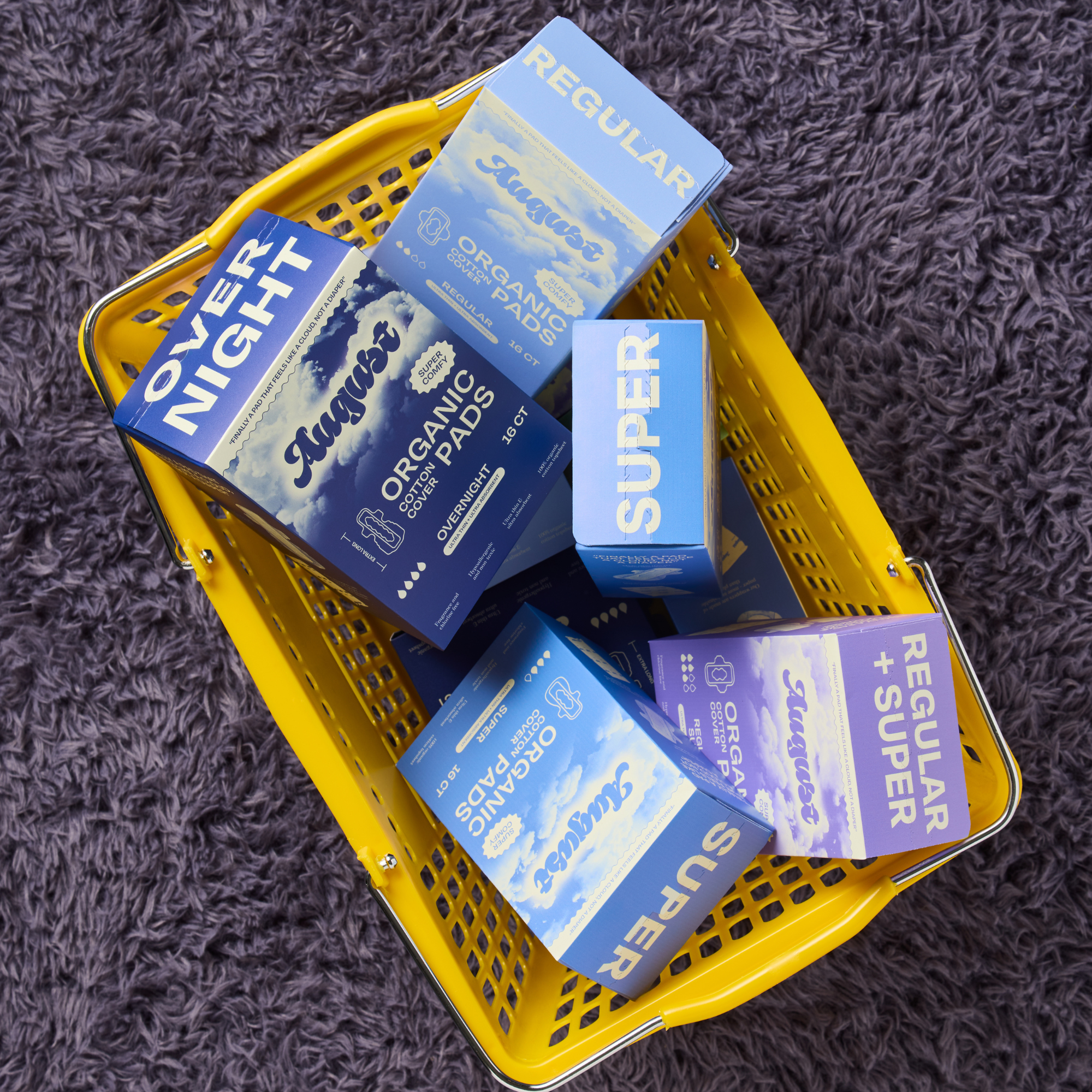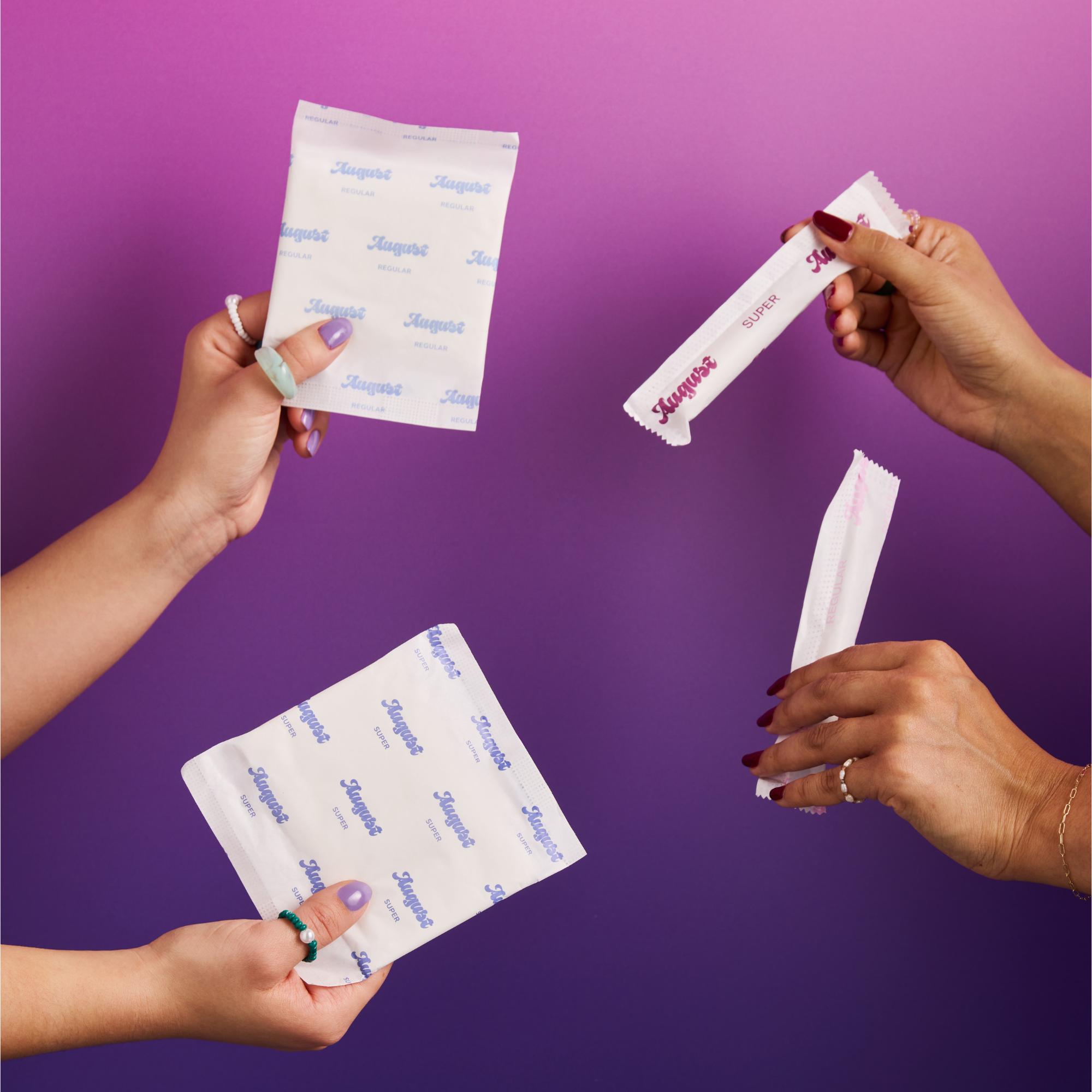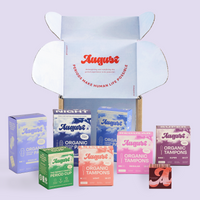Happy Father’s Day to all who claim this day for themselves!
The fact that you’re even reading this article means you’re doing something right for your (soon-to-be or maybe already menstruating) child.
Here’s the thing, really, the only difference between a non-menstruating father figure telling their child about periods versus a menstruating role model is that you can’t speak from lived experience. Otherwise, you can ABSOLUTELY be the one to introduce periods to your child and even be there to help navigate their first bleed.
In that event, August is here to lend some advice to all the father figures looking for tips on how to navigate the first period conversation with their child.
With a little bit of research & increased understanding, you’ll be able to introduce the changes that are about to happen to your child. You got this!!
If you don’t think it’s beneficial for you or the other non-menstruating family members to know about periods, guess what…it’s almost guaranteed that you have a menstruating person in your life :)
Here are just a few examples of moments where you might have to talk through a first period as a parent:

- Preteens are going to have sleepovers with other kids who might have a period!
- Volunteering on a school trip!
- Coaching a team of menstruators! (Coaches have certain rules like having to carry a first aid kit on the bench – a great place to keep a period product)
- Packing your pre-menstruating child to go to overnight camp
- Telling another parent that their child got their period while in your care or supervision.
If you feel confident talking about periods, your child will feel 110% more relaxed about their first few experiences. Plus, how great would it be if the next Gen of families and educators don’t even need to tackle the burden of ‘normalizing periods’?!
Let’s set the tone of the conversation before we get into the details:

Parents should go into a conversation with their child about periods with the intention of teaching them about the process itself – NOT the stigmas and cultural misconceptions that tend to surround menstruation. YOU have the opportunity to change the narrative about periods for your young menstruator to not feel shameful about the totally natural period experience.
As a parent, how do I start the conversation with my child about menstruation?

Start by gauging their understanding about puberty. What have they heard so far and from who? Correct any wrong information and confirm everything that’s true.
Sharing your own puberty experiences will help them feel more comfortable. If you're a menstruating father figure yourself, describe your first period and offer them the best piece of advice that you were given, as well as any key learnings from your personal pubescent experience.
Invite them to ask any questions they may have and answer them clearly. Direct them to reliable books or websites (like the #AskAugust database!) if they’re mature enough to do some solo research, or if they’re more comfortable reading than talking.
Remember that there's no correct age to start talking about periods, (some people have their first period as early as age 9!) and it shouldn't just be one conversation. A child's understanding (all genders included) should be built up – this can be done using basic words to explain periods, reproductive organs, and health care but, make sure to be honest and don't use too many euphemisms that might make your child think that periods are something to be secretive about!
What are examples of safe spaces for parents to talk about menstruation to their children?

A safe space isn't necessarily a physical place, it's more of a vibe that you create.
If you’re the one to initiate the conversation, make sure it’s in a private space that your child feels comfy in. If your child comes to you with questions, try not to dismiss them on the spot – if it’s not a good time, set an expectation to chat about it at another specific time or space (and stick by your word!).
As a parent, know that the following advice answers some of the anxieties your child might have ahead of talking to you about their period:
First of all – don't be nervous! It's totally natural for you to have your period and once you choose who to tell the first time, it will feel more and more normal to talk about your period moving forward!
As much as August is here for you for virtual support, and to supply some of the best organic, sustainable period products, you need to tell someone your trust in real life. You could choose to tell just one person, or a few. Whoever you do choose to tell, make sure you do it at a time and in a place where YOU feel most comfortable.
You could tell them verbally (either face-to-face, or on the phone), you could also tell them through text, or even write them a letter! If you want to be subtle…and maybe a little funny…just write that you need some period products on the grocery list.
Nothing major – mostly just where, how, and next steps re: products etc. They may not even know the full extent of body changes that are about to happen to them so this is your opportunity to introduce those in a comprehensive, approachable way.
The next section provides an overview on menstruation for any father figures who don't have a period.

If you think of any other questions not answered here, take a look through the #AskAugust database once you’re done reading for more information about periods!
1) The Menstrual Cycle
- The menstrual period cycle is a roughly 4-week span of time wherein menstrual flow (which includes blood, mucus, and other substances) from inside the uterus (inner part of the organ) shed.
- A typical cycle lasts about 2-7 days.
- After a first period, it's very common to not bleed again for another few months. Even after the first year or so, the cycle could be irregular. As they get older their flow and cycle will evolve.
2) Specific feelings or signs before, during and after a period to look out for:
- Ahead of starting a period, your child may start to see acne and experience body aches, breast tenderness, mood changes, and more regular vaginal discharge.
- Once their period is actually on its way, premenstrual syndrome (PMS) might arise. These symptoms can sometimes be worse than the blood part of periods...
- Over 90% of people with periods get PMS every time they have their periods. Others only get PMS every once in a while. Plus, the symptoms vary from person to person.
- The most common PMS symptoms are: cramps, bloating, breakouts, sore breasts, feeling tired, and mood swings.
3) Menstrual Cramps. They suck. But, most of the time, they are manageable.
- Pain medication like ibuprofen (Advil), naproxen (Aleve), or acetaminophen (Tylenol) can all be helpful to alleviate period pain
- Heating pads do wonders
- Light exercise can help to reduce cramping pains
- Staying hydrated & well-rested
If pain persists in a big way for a long duration of time, or if your child has an irregular period after 12 months or so from the initial one, consider chatting with a doctor to see if there is an underlying period disorder going on like endometriosis or PCOS, among others.
- There are pain mitigation plans to manage their period pains like birth control pills, TENS units, natural methods like vitamins and dietary changes, etc.
4) Why are those mood changes happening?
- The long and the short of it is that the 4-week menstrual cycle is driven by hormonal changes. Hormones are the chemicals in your body that can affect your emotions.
- You can read a medical description about hormones provided by an Ask August Medical Advisor HERE!
5) Expect some tears…
- This is a moment that could redefine the mental health of your child.
- Keep tabs on the ups and downs of their mood and whether or not it correlates to their period. If it doesn’t, this could be a sign of something else.
6) Is my preteen being lazy or is this attitude a symptom of getting their period?
- Laziness (or tiredness) is a super common symptom of menstruation! It's caused by not enough of a chemical (serotonin) being produced by your brain while leading up to, and on, your menstrual cycle. Another cause of fatigue is lack of sleep.
- Do your very best to be patient with your child in these moments. Try not to take it personally…
7) Cleanliness / Hygiene
Any mature menstruator knows the trials of getting blood stains out of their sheets or clothing – as a non-menstruating parent, you might not.
- Act fast and use cold water. If you have stain remover, spritz some of that on too. Run the clothes through the laundry if you have a load going in soon!
- Also, consider August’s 100% organic cotton period products that are known for preventing leaks!
- Encourage your teen to do regular body washes during their period.
- It’s important to also have washed hands before changing out a period product. Particularly tampons!
- Be sure to have toilet paper stocked up and nearby so there’s no awkward running around the house for it.
8) Products
The best piece of advice regarding products is to have them accessible in your bathrooms earlier than you think your child is going to need them. This creates an opportunity for your child to get to know what period products are available, get them curious, and avoid any nervousness if their period comes unexpectedly.
Some other good place to have products stashed:
- A car’s glove compartment
- A first aid kit
- In their bedroom
- In a pocket of their backpack or your go-to bag
Wondering what products are best for a first period? Look no further: August period care has 6 different options made for young menstruators including: tampons, pads, and liners. (Plus, we cover the tampon tax!)
For a first-timer, we’d suggest customizing a build-a-box of 1 box of each product.
- Start with the lightest absorbency products: liners, light tampons and day pads. If your child is soaking through those products quickly, move up in absorbency to regulars, supers and night pads.
- Read more about tampon absorbency HERE
Disposing of products – PSA: do NOT flush August pads or August tampons down the toilet!!!
- You might think that’s common sense but your teens probably don’t. Your pipes will thank us later!
Okay father figures (and other parents who read till the end!) – this should be all the information needed to talk to your child about periods.

Eventually, it’ll become reflexive to add your menstruating child’s preferred products to the grocery list!
If you have any other questions, feel free to peruse the #AskAugust database.
If you or your child want to feel supported by other people talking about periods, join our Inner Cycle community (vetted to make sure that everyone engaging in our weekly events is appropriate!) and follow along on socials (Instagram, Facebook & Tiktok!)
Happy Father’s Day, good luck with the first period experience as a parent, and KUDOS for taking initiative to educate yourself! <3



